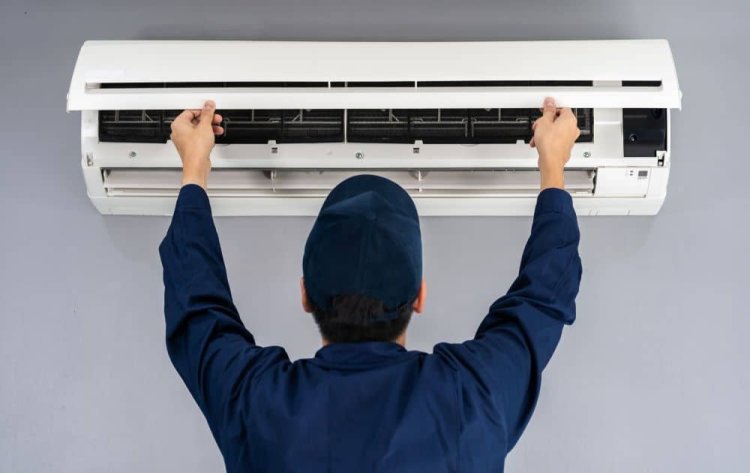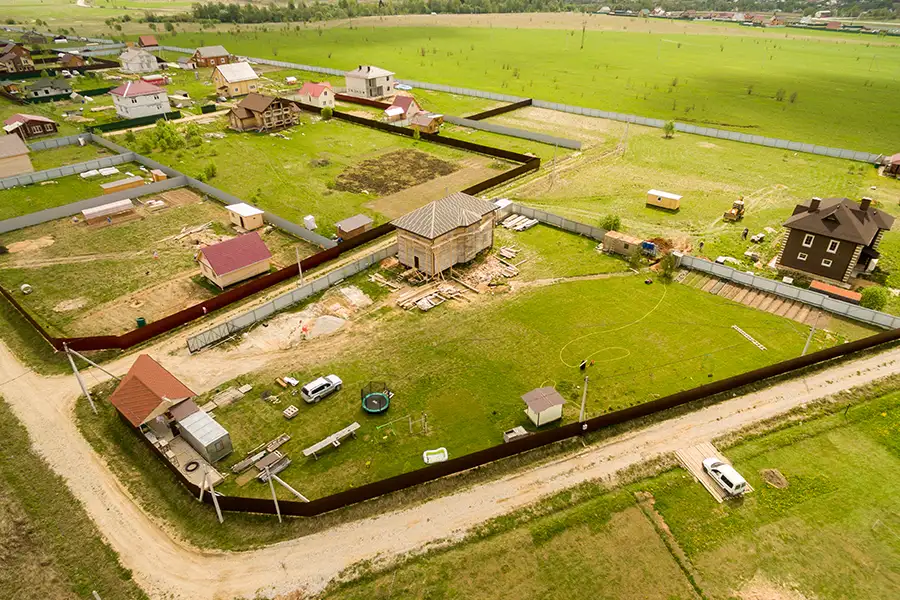How to Choose Between Tankless and Traditional Water Heaters
Selecting the right water heater for your home is a crucial decision, as it affects energy efficiency, water availability, and monthly utility costs.
Share this Post to earn Money ( Upto ₹100 per 1000 Views )

Selecting the right water heater for your home is a crucial decision, as it affects energy efficiency, water availability, and monthly utility costs. Homeowners today have two main options: tankless water heaters, which heat water on demand, and traditional tank-style water heaters, which store a reserve of hot water. Each type offers distinct benefits and potential drawbacks, so understanding their differences can help make an informed choice. In areas such as New Jersey, where reliable hot water is essential for comfort and convenience, consulting services like Excellence Plumbing & Heating Service in NJ can provide valuable guidance on choosing between these two options. Below, we explore the features, advantages, and considerations for tankless and traditional water heaters, helping you determine the best fit for your household.
How Traditional Water Heaters Work and Their Benefits
Traditional water heaters, also known as storage tank heaters, operate by heating a set volume of water in a tank, which is then held at a specified temperature until needed. These tanks typically come in sizes ranging from 30 to 80 gallons, with larger tanks providing more hot water for bigger households. Traditional water heaters are equipped with a thermostat that regulates the water temperature, and when hot water is used, the tank refills and reheats, ensuring a constant supply.
One of the main benefits of traditional water heaters is their relatively low upfront cost. Installation is straightforward, and replacement parts are generally affordable, making them a budget-friendly option. Because the tank maintains a reservoir of hot water, traditional heaters can provide immediate hot water for multiple fixtures simultaneously, making them ideal for families or homes with high hot water demands. For homeowners considering this option, Plumbing Services in Union, NJ offers professional installation and maintenance services to keep traditional water heaters running efficiently.
However, traditional water heaters do have limitations. Since they constantly keep water heated, they consume more energy, even when hot water isn’t being used. This “standby heat loss” can lead to higher energy bills over time. if the tank’s hot water supply is depleted, there can be a delay while the tank refills and reheats, which can be inconvenient during peak usage times.
Understanding Tankless Water Heaters and Their Advantages
Tankless water heaters, also known as on-demand heaters, offer a more modern approach to water heating. These units don’t store hot water; instead, they heat water only when needed. When a hot water tap is turned on, the tankless system activates, heating water as it flows through the unit. Once the tap is turned off, the unit shuts down, minimizing energy use and eliminating standby heat loss.
One of the most significant advantages of tankless water heaters is their energy efficiency. By heating water only as needed, tankless models can reduce energy consumption by up to 30% compared to traditional heaters, leading to lower utility bills. Tankless units are compact and can be installed in smaller spaces, freeing up valuable square footage in the home. These heaters also tend to have a longer lifespan than traditional models, lasting around 20 years or more with proper maintenance. Excellence Plumbing & Heating Service in New Jersey offers expert consultation and installation services for homeowners interested in upgrading to a tankless water heater, ensuring a seamless transition to this efficient system.
While tankless water heaters offer many benefits, they also come with higher upfront costs. Installation requires specialized equipment and possibly modifications to gas or electrical lines, which can increase expenses. Furthermore, tankless heaters have a limited flow rate, meaning that simultaneous use of multiple hot water fixtures can overwhelm the system in larger households, causing fluctuations in water temperature.
Energy Efficiency and Cost Considerations
When comparing tankless and traditional water heaters, energy efficiency is a major factor. Traditional water heaters continuously heat water in the tank, consuming energy even during periods of non-use. This constant operation can result in higher energy bills, particularly in homes where hot water demand fluctuates throughout the day. In contrast, tankless water heaters heat water only when required, eliminating standby heat loss and reducing overall energy consumption.
According to the U.S. Department of Energy, tankless water heaters are about 24% to 34% more energy-efficient for homes that use 41 gallons or less of hot water daily. For homes with higher usage, the efficiency advantage decreases slightly but remains significant. While tankless water heaters typically have higher installation costs, their energy savings can offset these expenses over time, especially for homes with moderate hot water usage. Homeowners in Union, NJ, can consult Water Heater Services in Union, NJ for detailed cost analyses, which can help determine if the long-term savings of a tankless model justify the initial investment.
Space Requirements and Installation
The size and installation process for each water heater type differ significantly. Traditional water heaters require more space due to the large tank, which can range from 4 to 6 feet in height, with additional room needed for ventilation and maintenance access. This design can limit installation options in smaller homes or apartments, where storage space is at a premium. Traditional heaters are usually installed in utility closets, basements, or garages, but they may not be suitable for homes with limited space.
Tankless water heaters, however, are compact and can be mounted on walls, making them ideal for smaller living spaces. Their installation location is more flexible, allowing them to be placed closer to the point of use, such as bathrooms or kitchens, which can reduce water waste and improve response time. Installation costs for tankless units may be higher, particularly if electrical or gas lines need to be modified, but their space-saving design can make them a practical solution for homes with limited room.
Hot Water Availability and Flow Rate
Hot water availability and flow rate are essential factors in choosing between tankless and traditional water heaters. Traditional water heaters have a finite supply of hot water, determined by the tank size. For instance, a 50-gallon tank may be sufficient for a small family, but in homes with high demand, this supply can be depleted quickly. When the tank is emptied, it must refill and reheat, causing a delay before hot water is available again.
Tankless water heaters, on the other hand, provide a continuous supply of hot water, as they heat water on demand. This feature can be particularly advantageous for homes with staggered hot water needs, as the system doesn’t run out of hot water. However, the flow rate of tankless water heaters is limited, generally between 2 and 5 gallons per minute. In larger households, simultaneous use of multiple hot water fixtures, such as showers and washing machines, can reduce the flow rate and cause temperature fluctuations.
To address this, homeowners can opt to install multiple tankless units or use point-of-use heaters to meet high demand. Consulting with Excellence Plumbing & Heating Service in New Jersey can help homeowners evaluate their hot water needs and determine the most efficient system for consistent water temperature and flow.
Lifespan and Maintenance
The lifespan and maintenance requirements of water heaters can influence the decision-making process. Traditional water heaters typically last between 8 and 12 years, depending on usage, water quality, and regular maintenance, such as flushing the tank to remove sediment buildup and replacing the anode rod. Although maintenance for traditional water heaters is generally straightforward, failing to perform these tasks can reduce their efficiency and lead to premature failure.
Tankless water heaters, by contrast, have a longer lifespan, averaging around 20 years with proper care. However, they do require regular maintenance, particularly if installed in areas with hard water, as mineral buildup can affect the heating elements and reduce efficiency. Regular descaling is recommended to ensure that tankless units perform optimally, and professional services like Plumbing Services in Union, NJ can assist with scheduled maintenance to extend the life of the unit.
Cost of Ownership Over Time
While traditional water heaters are typically more affordable upfront, tankless water heaters can offer cost savings over time through lower energy bills and reduced maintenance needs. Traditional water heaters require more frequent replacement, which can add to long-term costs, particularly in homes with high water usage. On the other hand, tankless heaters have higher installation costs, but their energy efficiency and longer lifespan can offset these expenses, providing savings over the years.
Homeowners who prioritize long-term savings may find that a tankless water heater is a more cost-effective choice, while those seeking a budget-friendly solution for immediate needs may prefer a traditional model. Water Heater Services in Union, NJ can help homeowners analyze both the initial investment and ongoing expenses to choose the option that aligns best with their financial goals.
Environmental Impact and Sustainability
Environmental considerations are increasingly important for many homeowners, and water heaters can have a significant impact on household energy use and carbon footprint. Tankless water heaters, with their on-demand heating, are more energy-efficient than traditional models, making them a more eco-friendly option. This efficiency reduces greenhouse gas emissions, particularly when paired with renewable energy sources such as solar panels.
Traditional water heaters, while more affordable, consume more energy due to standby heat loss, contributing to higher overall energy consumption. For homeowners seeking to reduce their environmental impact, tankless water heaters offer a sustainable choice, with the potential to lower both energy costs and carbon footprint. By consulting with Excellence Plumbing & Heating Service in New Jersey, homeowners can gain insights into how each water heater type aligns with their sustainability goals and explore potential incentives for energy-efficient upgrades.
Making the Right Choice for Your Home
Deciding between a tankless and traditional water heater ultimately depends on household needs, budget, and personal preferences. Traditional water heaters offer reliable hot water with lower upfront costs, making them suitable for families with high simultaneous hot water demands. However, for those seeking energy efficiency, space savings, and long-term cost benefits, tankless water heaters present an attractive alternative.

 thelimovanuu
thelimovanuu 














